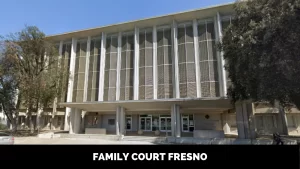Maryland Comptroller
The Comptroller of Maryland is a key position in the state government, responsible for essential financial management, tax administration, and fiscal oversight functions. As an elected office established by the Maryland Constitution, the Comptroller acts as the state’s chief financial officer, revenue collector, and primary tax administrator.
History and Background of the Office
The position of Comptroller in Maryland dates back to the founding of the state in the late 18th century. Along with the Governor and Attorney General, the Comptroller formed one of the original executive offices under the state Constitution of 1776. The office has existed continuously since then, with its duties and responsibilities evolving over time.
Constitutional and Legal Basis
Article 6, Section 1 of the current Maryland Constitution establishes the Comptroller as the head of the state Treasury Department. As codified in the State Government Article of the Maryland Code, the Comptroller must “superintend and enforce the execution of the revenue laws of the State.” This provides the legal foundation for the office’s financial management and tax administration roles.
Qualifications and Requirements
While the Constitution does not specify qualifications for the Comptroller, candidates must be U.S. citizens and registered voters in Maryland. The Comptroller cannot concurrently hold other federal, state or local elected offices. There are no term limit restrictions.
Elections and Terms
The Comptroller holds a four-year term and is elected in midterm election years. This means the election occurs at the midpoint between presidential election years.
Recent Election Results
In the most recent 2022 election, Democrat Brooke Lierman defeated Republican Barry Glassman to become the new Comptroller. She will serve a four-year term from 2023-2027.
Roles and Responsibilities
The core duties of the Comptroller’s office fall into two main categories: financial management and tax administration.
Key Responsibilities
As Maryland’s chief fiscal officer, the Comptroller oversees the state budget, accounts, revenue estimates, investments, and general fiscal health. This entails compiling and publishing the state’s annual financial reports. On the tax side, the Comptroller administers Maryland’s revenue laws, collects and enforces taxes, and assists taxpayers.
Divisions and Bureaus
The office contains several major divisions and bureaus handling these duties, including Fiscal Services, General Accounting, Revenue Administration, Compliance, and Taxpayer Services. The Comptroller also chairs the Board of Public Works along with the Governor and Treasurer.
Financial Management
One of the largest responsibilities is tracking and managing the state’s finances. The Comptroller monitors spending, analyzes revenue collections, and ensures accounting standards are upheld.
Revenue Estimation and Tax Policy
A key task is developing independent estimates and forecasts of state revenues. These projections directly inform the budget process and help policymakers evaluate the impact of proposed tax law changes.
Accounting, Auditing and Fiscal Compliance
The Comptroller’s office sets statewide accounting policy and produces the state’s Comprehensive Annual Financial Report. Staff conduct financial compliance audits of state agencies.
Tax Administration
The Comptroller plays a lead role in administering Maryland’s tax system and overseeing revenue collection.
Tax Collection and Enforcement
This entails processing tax returns, collecting individual and business taxes, conducting audits, and taking enforcement action against delinquent taxpayers.
Taxpayer Assistance
The office offers guidance to taxpayers on issues like tax deductions, credits, filing returns, and resolving liabilities or audits. Assistance is provided through taxpayer service offices, a call center, and online services.
Current Leadership and Initiatives
Comptroller Brooke Lierman
Sworn in during January 2023, Lierman is the current Comptroller bringing new priorities and leadership to the position. She is focused on issues like tax equity, affordability, and supporting working families.
Policy Priorities and Goals
Lierman aims to reform the tax code to make it more progressive and equitable. She plans to enhance tax credits benefiting low-income residents. Auditing large corporations to ensure tax compliance is another priority.
Recent Audits and Actions
The Comptroller’s office recently completed audits assessing agency spending on COVID-19 relief funds and investigating corporate income tax underreporting. The audits identified areas for improved oversight and millions in potential recouped revenue.
Looking Ahead
The Maryland Comptroller will continue playing a vital fiscal oversight role, working to shore up state finances amid economic uncertainty. With a new Comptroller in place, the office is poised to pursue reforms advancing tax fairness and supporting citizens. The Comptroller’s independent forecasts and prudent financial management will remain essential given potential budget challenges ahead. While specific policy initiatives may evolve, the core duties of safeguarding the state’s finances and administering taxes are enduring functions outlined in Maryland’s Constitution.
Conclusion
For over 200 years, the Comptroller has been an integral part of Maryland’s government – an elected financial watchdog empowered to manage the state’s finances, collect taxes, and enforce revenue laws. As an office enshrined in the Constitution, the Comptroller provides an important check and balance on spending and taxation. Through prudent fiscal oversight and administration of revenues, the Comptroller will continue promoting the responsible use of taxpayer dollars.
FAQ
Q: How long is the term for Maryland’s Comptroller?
A: The Comptroller serves a four-year term, with elections occurring at the midterm between presidential election years.
Q: What are the main job duties of the Comptroller?
A: The Comptroller oversees the state budget, revenue forecasts, tax administration, and accounting compliance. Key responsibilities relate to Maryland’s finances and taxes.
Q: Who audits state agencies in Maryland?
A: The Comptroller’s office conducts routine financial compliance audits of state government agencies. These help ensure proper use of funds.
Q: How are tax rates set in Maryland?
A: While the Comptroller administers tax laws, actual tax rates are set by the Maryland General Assembly through legislation signed by the Governor.
Q: Where does the office get its authority?
A: The Maryland Constitution established the Comptroller as part of the executive branch. Laws codified duties like revenue collection and enforcing tax laws.





